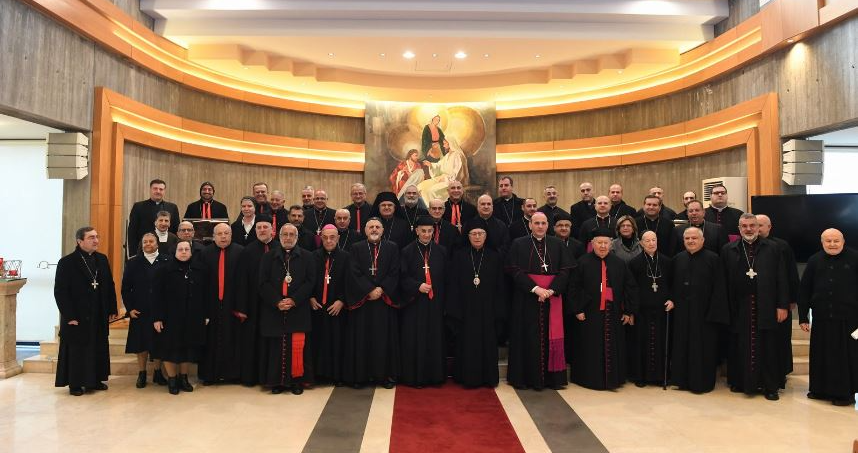
Founded in 1967, the Assembly of Catholic Patriarchs and Bishops in Lebanon (APECL) is undergoing structural renewal to enhance pastoral efficiency and improve the management of its assets. This ambitious goal was the focus of its 57th ordinary session, held at the Bethania Retreat House (Harissa, February 17–20), after being postponed from the fall due to the war.
A progress review was deemed necessary to ensure that APECL had not grown complacent and that the drive for collaboration among the Eastern Catholic Churches remained as strong as at its inception, according to an anonymous ecclesiastical source.
While reflection committees and initiatives exist within these Churches, some far-sighted bishops questioned whether they were sufficient. They argued that APECL must rethink its approach and rediscover the essence of working together. Originally created as a platform for ecclesial communion through consultation, coordination and cooperation, APECL now faces the challenge of improving its effectiveness. Bishops have attempted, with varying degrees of success, to address overlapping structures that render some commissions ineffective, rivalries between programs and individuals, administrative inertia and institutional shortcomings.
A Distinguished Visitor
The Holy See chose to coincide the session with the arrival of a distinguished guest: Canadian Jesuit Cardinal Michael Czerny, S.J., President of the Dicastery for Promoting Integral Human Development.
Observers see this visit as part of the Vatican’s increasing pastoral engagement with Eastern Churches at a pivotal time when they must consolidate their efforts to confront the wars that are emptying the Middle East of its Christian population.
Conducted discreetly, without official ceremony, such visits allow the Holy See to gauge the country’s reality firsthand and to assist Church hierarchies—often mired in formalism—in better understanding and addressing the needs of young people drawn to emigration.
This initiative is not new. Indeed, the call for unity in action and purpose among Eastern Churches dates back to the Synod on Lebanon in 1996, a call reiterated by the 2013 Synod on the Middle East and consistently reinforced by Popes Benedict XVI and Francis during their visits to the region.
A Call for Sobriety and Integrity
It is worth recalling Pope Francis’ words in 2013 when he addressed Eastern Church leaders during a day of prayer and reflection at the Vatican:
“For our testimony to be credible, we are called to (...) a sober way of life, (...) to a charity that is both fraternal and paternal, which bishops, priests and the faithful—especially those who live alone and are on the margins—expect from us.”
He added, “I especially think of our priests, who need understanding and support, even on a personal level. They have the right to receive our good example, both in matters of faith and in all ecclesiastical affairs. They ask us for transparency in the management of Church assets and for care toward all weaknesses and needs. All of this must be exercised with the utmost sincerity, in the authentic synodal spirit that defines Eastern Churches.”
Social Teaching and Church Assets
Another key topic on the session’s agenda was the importance of upholding Church teaching while ensuring the responsible management of its resources. The vast land holdings of Eastern Churches, often a source of scandal among the faithful, remain underutilized due to favoritism inherited from the past.
According to episcopal sources, the Apostolic Nuncio proposed the creation of a “National Common Fund for Lebanon’s Churches” to redistribute financial resources based on needs. While some dioceses have abundant assets, others lack the means to support essential ministries and institutions.
The Vatican representative also urged a more professional approach to managing Church properties, which are frequently mismanaged. “Some ecclesiastical institutions don’t even know what they own,” the Nuncio reportedly stated during the session’s opening. “As a result, their assets enrich everyone except the Church and the poor, creating scandals within the Christian community.”
A Visit to Jamhour Cemetery
Alongside his participation in the APECL session, Cardinal Czerny made several pastoral visits. Notably, he traveled to Tripoli, where he met with the city's mufti, Sheikh Mohammad Imam.
One of his most moving visits took place at Collège de Jamhour, where he paid tribute at the grave of Hans-Peter Kolvenbach, who led the Society of Jesus for 25 years and considered Lebanon his spiritual home.



Comments